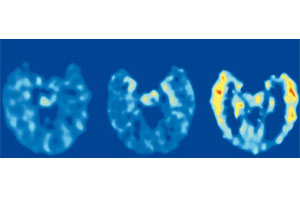Old age is the last stretch of our long life. It corresponds to the lapse of time that goes from age 65 on, until the person passes on. There is no deadline because every organism is different, has had different life conditions, the environment that has surrounded it is not the same and even the diseases that affect it vary.
However, records around the world point out that the people to live the most have reached the age of 120, but the average in Chile is of 77. This final period involves a deterioration of all organic activities. It is impossible to fight the passage of time, which will leave important marks of all of the body’s systems, even on those people with an excellent quality of life.
Among the systems that suffer a greater deterioration during old age the following stand out, the excretion (functioning of the kidneys) and respiratory, the functioning capabilities of the liver and heart are also diminished. Also at this stage, the intestines shrink and the process of breaking down and absorbing nutrients from food becomes more difficult. Likewise, the arterial ducts generally present important deposits of cholesterol in their walls (atheromas) which, little by little begin to clog them.
This prevents good circulation, with a risk of cardiovascular accidents (thrombosis, infarctions, blood pressure problems, among others).
Also, as we get old, he brain deteriorates. Neurons begin to die, reason for which it is possible to detect a decrease in reaction capabilities and intellectual development in older adults. Visibly, over the years many people lose size and height. This due to the shortening of the spine (mainly due to the diminishment of the intervertebral discs), the inclination of the shoulders and the continual loss of muscle mass.
Cellular aging
All of the cells that make up the human body age (some first, others later). This process called aging is irreversible and can even be sped up by external factors like the consumption of tobacco, drugs or a sedentary life.Science has the certainty of this degenerative process. However, it has yet to figure out the mechanism that triggers it and causes cellular death. This way, this revelation would be key in stopping aging and perhaps attaining the miracle of »eternal youth». Among the theories that are handled the following stand out:
– Genetic programming: science postulates that all cells are programmed to age. They would have an “expiration date” since their origin, due to which aging would be a natural process.
– Action of free radicals: throughout life our body produces free radicals, very oxidizing substances that deteriorate cells irreversibly.
- Shortening of the telomeres: the ends of chromosomes, called telomeres, are reduced every time the cell divides. Once it reaches its shortening limit, the cell loses its renewal capabilities and deteriorates.
– Immune action: the immune system could weaken and attack some molecules of the body, deteriorating all cells.
Sensory deterioration
Generally, aging affects the stimulation and response of our senses. Many times, old people lose the sensitivity to taste some foods, due to the deterioration of taste and smell. Likewise, important hearing problems show up. Sounds may be heard distorted, making communication difficult. Usually, the poor reception of some sounds is due to the degeneration of the cochlea and the exposure, for years, to loud noises that speed up deterioration.
At a visual level, disorders that alter the normal visualization of the environment are also recurrent. There are a series of structural changes that affect ocular efficiency when it comes time to focus on some nearby objects. Vision can even be abnormal due to the degeneration of the macula (central zone of the retina) or because of a cataract. This last disease is characteristic of old age and is the loss of the crystalline’s transparency, biconvex structure of the eye that is located between the iris and vitreous body, due to the gradual change of the protein fibers that make it up.








 Muere Evita
Muere Evita